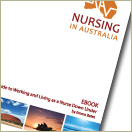|
Importance of Continuing Education for NursesNurses are responsible for providing many levels of care to patients in hospitals, health centers, doctors' private practices, and even homes. Comprising the largest segment of health care practitioners, nurses provide many vital services, including prepping patients for surgery, helping people eat or take their medication, monitoring vital signs, and evaluating response to treatment. With such crucial roles in health care, nurses must stay on top of changing technologies and constantly hone their skills, which is why it’s so important for them to engage in ongoing training or continuing education for nurses. Required Continuing Education for Nurses Most nursing boards across the United States require that nurses complete a minimum number of continuing education (CE) credits or continuing education units (CEU) each time they’re recertified to work as an RN or LPN. These CE requirements range from 8 hours to as much as 45 hours per renewal period – every one to three years, depending on the state.
Continuing education requirements can be met by conferences, workshops, online learning programs, and even certain DVD training modules. The subjects range from refreshers of LPN or RN training to workshops offering new information on cutting-edge drugs, treatments, and patient care methodologies. The Need for Continuing Education for Nurses, both LPNs & RNs These CE credit requirements exist for very good reasons – to keep nurses’ skills sharp, to keep them up to speed on new innovations and modern approaches, and to keep the quality of patient care at a consistently high quality. Ongoing training helps to ensure a nurse's practical knowledge of diagnoses, treatment, and medical protocols. It’s also essential in introducing new research findings on illnesses and medications to nurses who are already practicing. First and foremost, ongoing education ensures that a nurse's skills and knowledge base are maintained. The human memory isn’t failsafe, and knowledge that isn't used often may be lost. If nurses want to stay sharp and on top of the latest industry developments, continuing training and refresher courses are the way to go. These kinds of programs can be found in all areas and aspects of nursing, from emergency room skills to prenatal and palliative care. Refresher courses can be valuable for LPNs and RNs working in hospitals or clinics, as well as those who work independently as home care nurses. A second, and equally important, type of continuing education serves to teach new information and skills to nurses already in practice. Although you may be out of school and already in the workforce, medical research and development doesn't stop or even slow down. New advances are made every day, and new drugs and treatments are released just as often. Every nurse can benefit from keeping current with training programs on new research findings and best practices. Other training programs offer instruction in specialized skills, such as infant care, geriatric care, or alternative therapies in specific fields of expertise, which can be beneficial in rounding out your practice. Many of these offer CE credits, which can be applied toward RN or LPN requirements. Please visit continuing education for nurses LPN to RN for more information on advancing to the RN designation. Return to the home page for more about LPNs. Related Articles on investing in your education: |



